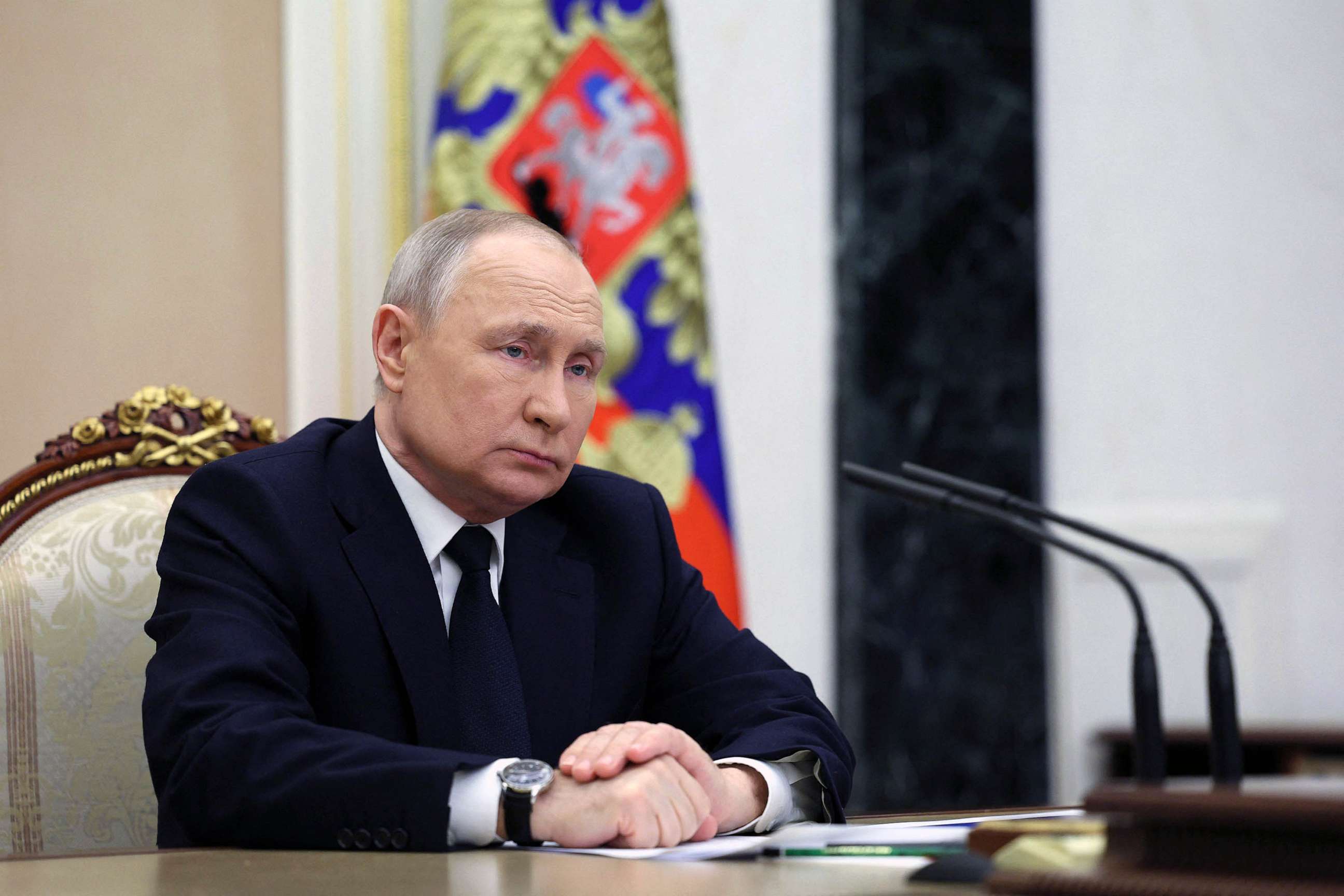Putin says he'll move nukes to Belarus, prompting Ukrainian alarm; US says no sign of imminent risk
There's no "indication" Putin has followed through, a White House official said.
U.S. officials and lawmakers reacted with a mix of caution and concern this weekend in the wake of comments from Russian President Vladimir Putin that he would be moving tactical nuclear weapons into neighboring Belarus, which provided a crucial staging ground for the invasion of Ukraine.
Ukraine's government denounced such a move as a provocation and called for a U.N. Security Council meeting.
Speaking on Russian TV on Saturday, Putin insisted that the reason for the decision, reached with the agreement of Belarus, was the U.K. supplying depleted uranium shells to Ukraine, though British officials have called such munitions "a standard component and ... nothing to do with nuclear weapons."
The weapons Putin would move into Belarus would be less powerful and with a shorter range than other kinds of nuclear weapons; he said the storage necessary for them would be ready by July.
"We are doing what they have been doing for decades, stationing them in certain allied countries, preparing the launch platforms and training their crew," Putin said on TV.
U.S. National Security Council spokesperson Adrienne Watson said later Saturday that the U.S. hasn't seen any indications Russia is going to imminently use a nuclear weapon and will not be changing its own posture.
"We have seen reports of Russia's announcement and will continue to monitor the implications," Watson said, adding, "We remain committed to the collective defense of the NATO alliance."
The State Department responded similarly, with a spokesperson saying in a statement that "Russia and Belarus have talked about doing this for some time."
"This could be political signaling on Belarus Freedom Day, which is celebrated by the democratic opposition to the Lukashenka regime," the spokesperson said, referring to Belarus' authoritarian president, Alexander Lukashenko.
White House spokesperson John Kirby said Sunday that "we have not seen any indication he's [Putin] made good on this pledge or moved any nuclear weapons around."
"We've, in fact, seen no indication he has any intention to use nuclear weapons -- period -- inside Ukraine," Kirby said on CBS' "Face the Nation." "Obviously, we would agree that no nuclear war should be fought, no nuclear war could be won and clearly that would cross a major threshold."

Appearing on ABC's "This Week" on Sunday, Rep. Mike Gallagher said Putin's remarks amounted to posturing but were troubling nonetheless.
"Putin has engaged in nuclear saber-rattling since the start of this crisis. It is something to be concerned about, but we should not allow his threat to deter us," said Gallagher, R-Wis. "We can't allow that to be a cause for delaying critical weapon systems that we need to deliver to the Ukrainians."
The risk of nuclear weapons being used has reemerged on the world stage since Russia invaded Ukraine in February 2022.
U.S. President Joe Biden said at a fundraiser in October that Putin was "not joking when he talks about the use of tactical nuclear weapons or biological or chemical weapons" and that "we have not faced the prospect of Armageddon since Kennedy and the Cuban missile crisis" in the 1960s.
Kirby subsequently said on "This Week" in October that Biden was reflecting the very high "stakes" of the conflict rather than immediate danger.
"We are monitoring this as best we can, and we have been monitoring his nuclear capabilities, frankly, since he invaded Ukraine back in February," Kirby said then.
Putin declared last month that Russia was suspending its participation in the New START treaty, first signed in 2010 and extended in 2021, which implements caps on the number of nuclear weapons deployed by Russia and the U.S. and inspections of nuclear sites.
He blamed NATO support for Ukraine.
Soon after, Biden told ABC News anchor David Muir that Putin had made a "big mistake."
"Not very responsible. But I don't read into that that he's thinking of using nuclear weapons or anything like that," Biden said.
ABC News' Tal Axelrod, Cheyenne Haslett, Matt Seyler, Tanya Stukalova and Edward Szekeres contributed to this report.




